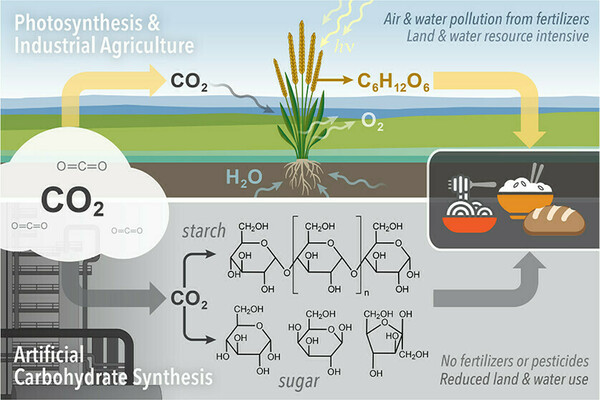
Casey P. O’Brien, Madelynn J. Watson, and Alexander W. Dowling, ACS Energy Letters. DOI: 10.1021/acsenergylett.2c01550
Abstract: The agriculture industry relies on biogenic photosynthesis to meet world demands for carbohydrates that are used for food and consumer products. However, this biogenic approach requires extensive land and water resources, produces significant greenhouse gas (GHG) emissions, and pollutes freshwater sources with excess nitrogen fertilizers. As the global population increases, the demand for carbohydrates will surpass what biogenic photosynthesis can supply and negative environmental impacts will be exacerbated. In principle, edible carbohydrates could be synthesized artificially from CO2. Compared to the current biogenic approach, artificial carbohydrate synthesis from CO2 has significantly lower GHG emissions, reduced freshwater requirements, a smaller physical footprint, and no need for fertilizers or pesticides. Converting CO2 to edible carbohydrates is a significant challenge, however, because of the high thermodynamic stability of CO2, the high complexity of carbohydrates, and the required scale of such a process. This Perspective examines these challenges and identifies opportunities for scientific innovation to enable commercially viable artificial carbohydrate synthesis from CO2 at gigaton per year scales.